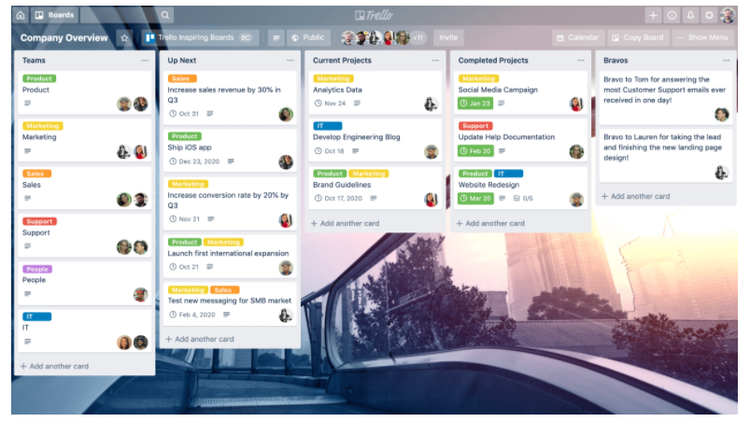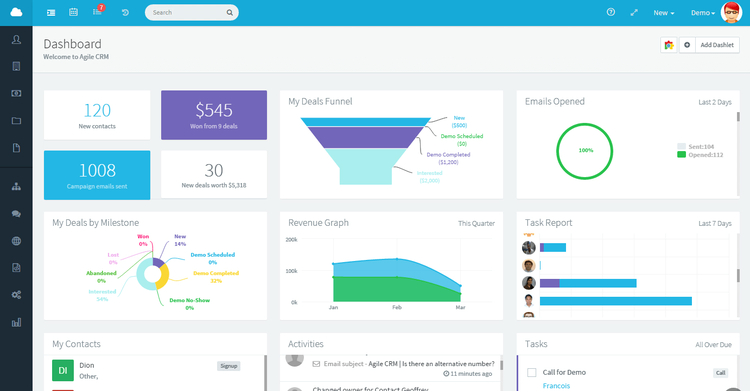Thinking of Becoming a Digital Entrepreneur? Read This First
Have you ever dreamed of starting your own business? It’s a common aspiration -- the flexibility to create your own schedule, the freedom to drive business in the direction you desire, and the possibility to earn more than a standard, salaried job.
Yes, it takes concrete planning and a hoard of resources to launch your idea, but your timing couldn’t be better. Due to the fluctuating work environment from COVID-19, the reasons to become an entrepreneur are plentiful.
We’re going to focus exclusively on starting an online business since the pandemic is driving more and more of life to the virtual domain. An online income source is a great solution for the immediate now, plus it’ll allow you a long-term work-life balance, something so many of us crave.
Overview: What is a digital entrepreneur?
The only difference between a standard entrepreneur and a digital entrepreneur is where business is conducted. Some businesses operate entirely in-person, such as your local farmer’s market. A majority of businesses take a hybrid approach, such as a dine-in restaurant that also offers an online take-out menu. However, digital entrepreneurs rely exclusively on online commerce.
Some examples of digital businesses include publishing ebooks or podcasts, offering online classes, creating downloadable products such as games or software, designing websites, or selling products without a brick-and-mortar storefront.
Benefits of becoming a digital entrepreneur
There’s no denying that being your own boss totally rocks. Wearing pj’s all day and working during your most productive hours (even if that’s in the middle of the night) is only the tip of the iceberg.
Here are some more reasons to consider the entrepreneurial lifestyle:
Ability to ignite your passion
Starting your own business means following your dreams. The work becomes more meaningful, more potent, and therefore more enjoyable. No longer do you have to answer to anyone else. This is your business -- take it where you desire!
Freedom to work from anywhere
The freedom that comes with an online business is inspiring. Obviously your choices are limited right now, but eventually the world will open up again.
As long as you have a reliable WiFi source, you can work in a cabin in the woods, travel to Australia and beyond, or hop from funky cafes to quiet libraries.
Opportunity to grow and expand
With a standard job, you’re locked into a regular salary. Sure, there’s the hope you’ll get a minuscule raise here and there. But in contrast, your own business has no boundaries. You can grow and spread across the globe, or even downscale if you need more personal time.
It’s your business; you can do with it as you please.
Flexibility to add in extra work
Perhaps you don’t want the responsibility of running a full-time business, or at least not yet. That’s OK. Your online business can be a small stream of extra income while you keep your day job or while the kids are napping.
Or, here’s another thought: Start a few businesses! Perhaps you have several good ideas. Go ahead and dabble a little in each. You never know which one will take off and soar.
And sometimes you might choose to keep an online business alive just because it brings you joy -- not everything needs to result in crazy high profits. However, we advise against continuing with ventures that are losing a lot of money, unless you’re confident a profit is right around the corner.
How to become a digital entrepreneur
It’s easy to brainstorm on digital business ideas all day long. But putting them into action takes grit, determination, and some serious planning. We already have tips on how to become an entrepreneur. Here we’re going to take it further and consider what will succeed online given today’s volatile economy.
1. Develop entrepreneurship traits
All successful entrepreneurs have something in common: They all adopt an entrepreneurial mindset. The list of key features varies, but here are the most common ones:
- Value your strengths and weaknesses: Nobody is perfect. It’s important to know those areas you’ll naturally excel and those where you’ll need to ask for assistance.
- Ignore doubt and negative talk: We’re all gripped by negative self-talk -- I’m not worthy of this and I’ll probably fail. But successful business owners stomp those dreadful thoughts right out. You’ve got to believe in yourself: It’s as simple as that.
- Embrace fear: It’s scary to venture out by yourself, especially given the uncertainty of the world’s economy. It’s OK to take baby steps in your venture, but don’t let the fear halt you in your tracks.
- Never stop learning: There’s always room for improvement and growth. Keep expanding your horizons and broadening your knowledge base.
- Take risks: Nobody achieves their dreams by playing it safe. Obviously stick within your budget and means, but you have to push beyond your comfort zone in order to fly.
- Reach out for help: It’s impossible to grow a successful business without a little help along the way.
2. Select your type of business
Take a look at the common types of entrepreneurship. Identifying the type of entrepreneur you want to be will help structure your overall business plan. It’s advantageous to think ahead to where you see your business in five, 10, even 20 years from now.
Here are a few examples:
- Social: This is where a business is dedicated to improving social problems such as sustainability or lack of health, food, and education. An example is how TOMS partnered with Save the Children -- for every pair of shoes purchased, a pair is sent to a child in need.
- Innovation: This describes products and inventions that improve our daily lives. Think new apps, software, devices, online programs, and so on.
- Scalable: Do you want your business to grow and franchise? It’s OK to stay small and keep everything within your own hands. But if you want to expand your business, think of a model that will allow it to grow online over years to come. An example is this online tutoring business, which hired extra teachers to increase profits -- all accessible in the virtual domain.
If you're still feeling stuck, here are our top 10 small business ideas for 2021.
3. Establish clear communication
Since you're creating an online business, there won’t be an official office or a place for in-person meetings. Therefore, if you’re bringing employees or contract workers on board, you’ll want to establish reliable modes of communication to keep everyone on the same page.

Inspire your remote team with a color-coated project page. Image source: Author
We suggest focusing on these two:
- Project management: This is necessary for tracking projects, maintaining daily communication, sharing files, and creating a steady workflow. Our top choices are Monday.com, Podio, and Trello. You can also use a basic free version if you’re a solo worker for now, with the option to upgrade as your business grows.
- Video conferencing: As the world turns virtual, your technology needs to be top-notch. Engage on a more personal level with your employees or clients by utilizing software such as Zoom and Google Meet.
Also, make sure to hone your skills on how to manage a remote team.
4. Strengthen your budget
Even the most exciting dreams can fail if you don’t plan accordingly. It can be hard to launch a business with limited funds -- but it’s never impossible. We suggest starting small, ensuring your business concept is sustainable before pushing full steam ahead.
If you’re taking accounting into your own hands, make sure to use top accounting software to keep your brain and bank account from fizzling out.
Lastly, poke around to see if there’s a definite need for this venture. The last thing you want is to pour all your money into a business idea that has no worth or value in today’s market.
5. Establish your brand
Online success means being able to stand out among the flickering ads, banners, and enticing offers from more established businesses. It can feel daunting to even get started.
Here are a few ideas to consider as you launch your online business:
- Create your name: The future lies in building your business’s brand. Not to pour on the pressure, but, well, this is kind of important (OK, it’s really important). Brainstorm and get feedback from friends, colleagues, and social media. Hire a professional designer to create a logo that really pops.
- Build your online presence: If you want to succeed with digital commerce, you need to connect with every online platform out there. That means creating multiple social media accounts, learning how to use effective hashtags to drive traffic to your website, and establishing a rapport with your audience by creating a Facebook community page.
- Experiment with ads: There’s no limit to the types of online advertising available. You can start with Google ads, Facebook ads, and also try your hand at retargeting ads.
- Engage with emails: One of the most effective ways to boost your online business is to regularly engage via email. We suggest offering incentives in your regular newsletters, such as coupons, discounts, or competitions. Definitely use email marketing software such as Mailchimp to broaden your reach.

Strengthen your business’s brand with one of Mailchimp’s user-friendly email templates. Image source: Author
6. Analyze and assess
Once your online business is up and running, you’ll want to step back and take a deep look at what’s working. Luckily, almost all social media platforms offer insightful analytics. Sometimes you have to upgrade to a business account or pay extra for your advertising efforts, but it’s worth it.

Examine your business’s overall success with a detailed CRM program. Image source: Author
Most importantly, make sure to use analytical customer relationship management (CRM) software in order to streamline your marketing efforts, sales reports, and to improve your customer service relationships. As you can see above, having all this information presented in an easy-to-read format makes it a breeze to assess how your business is performing.
Remember, the key to a successful business is knowing what worked and how to successfully replicate it again and again. Don’t just keep stumbling ahead in the dark.
If you’ve got a good idea, keep moving forward
Becoming a successful online entrepreneur doesn’t happen overnight. It takes plenty of time and patience to build your online business. And sometimes you’ll see a lot of failure before the money starts pouring in.
Trust in your gut. If you’ve got a good idea, then try adopting the fake-it-until-you-make-it attitude. Soon enough, that mindset will become reality.
Above all else, make sure the world knows you exist! You might have the most brilliant idea of the century, but if you’re hiding in a lonely cave you’re bound to lose money. Get out there and post on every social media platform, blast those inboxes with amazing offers, and stamp your logo all across the internet. All businesses started from scratch. If they can succeed, so can you.
Alert: our top-rated cash back card now has 0% intro APR until 2025
This credit card is not just good – it’s so exceptional that our experts use it personally. It features a lengthy 0% intro APR period, a cash back rate of up to 5%, and all somehow for no annual fee! Click here to read our full review for free and apply in just 2 minutes.
Our Research Expert
We're firm believers in the Golden Rule, which is why editorial opinions are ours alone and have not been previously reviewed, approved, or endorsed by included advertisers. The Ascent, a Motley Fool service, does not cover all offers on the market. The Ascent has a dedicated team of editors and analysts focused on personal finance, and they follow the same set of publishing standards and editorial integrity while maintaining professional separation from the analysts and editors on other Motley Fool brands.
Related Articles
View All Articles